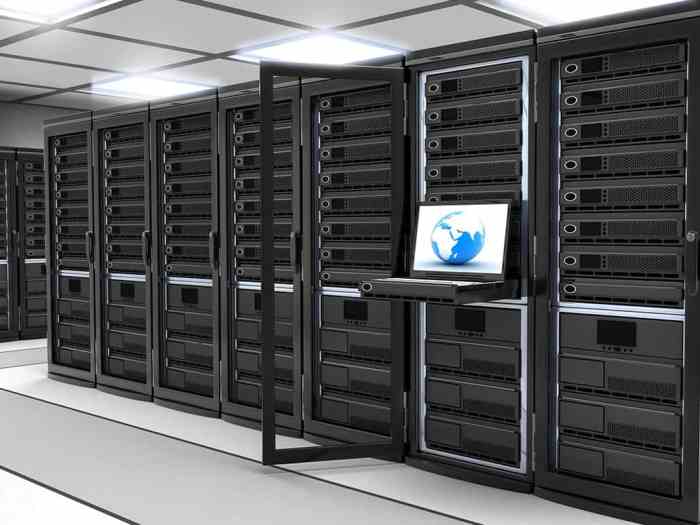Modern storage spot for electronic data with the – In the era of digital transformation, modern storage solutions for electronic data have emerged as a critical aspect of data management and accessibility. These advanced systems offer numerous advantages, enabling businesses to store, manage, and protect their valuable data effectively.
From cloud-based storage to sophisticated data management features, modern storage systems provide a range of capabilities that enhance data security, accessibility, and integration with business applications.
Modern Storage Solutions for Electronic Data

Modern storage solutions for electronic data offer significant advantages over traditional storage methods. They provide greater flexibility, scalability, and cost-effectiveness, making them ideal for businesses of all sizes.
Types of Modern Storage Solutions
Modern storage solutions come in a variety of forms, including:
- Cloud storage: Cloud storage is a service that allows businesses to store data on remote servers accessed over the internet.
- Network-attached storage (NAS): NAS is a dedicated storage device that connects to a network and allows multiple users to access data simultaneously.
- Storage area networks (SANs): SANs are high-performance storage networks that provide block-level access to data.
Benefits of Cloud-Based Storage Solutions
Cloud-based storage solutions offer several benefits, including:
- Scalability: Cloud storage can be easily scaled up or down to meet changing storage needs.
- Cost-effectiveness: Cloud storage is typically more cost-effective than traditional storage solutions.
- Accessibility: Cloud storage can be accessed from anywhere with an internet connection.
Features of Modern Storage Systems
Modern storage systems offer a range of features that enhance data security and accessibility. These features include:
- Data encryption: Modern storage systems use encryption to protect data from unauthorized access.
- Data replication: Modern storage systems replicate data across multiple devices to ensure data redundancy and availability.
- Snapshot technology: Modern storage systems use snapshot technology to create point-in-time copies of data, allowing for easy data recovery.
Specific Technologies Used in Modern Storage Systems
Modern storage systems use a variety of specific technologies, including:
- Solid-state drives (SSDs): SSDs are high-performance storage devices that use flash memory to store data.
- Hybrid storage systems: Hybrid storage systems combine SSDs with traditional hard disk drives (HDDs) to provide a balance of performance and cost.
- Object storage: Object storage is a storage architecture that stores data as objects, rather than files or blocks.
Data Management in Modern Storage Systems
Data management is essential in modern storage systems to ensure data integrity, availability, and security. Data management methods include:
- Data deduplication: Data deduplication removes duplicate copies of data to save storage space.
- Data compression: Data compression reduces the size of data to save storage space.
- Data tiering: Data tiering moves data to different storage tiers based on its importance and access frequency.
Best Practices for Data Management
Best practices for data management include:
- Implement a data governance policy.
- Use data management tools.
- Monitor data usage and performance.
Integration with Business Applications: Modern Storage Spot For Electronic Data With The

Modern storage systems can be integrated with business applications to improve business processes. Integration methods include:
- APIs: APIs (application programming interfaces) allow business applications to access data stored in modern storage systems.
- Storage plugins: Storage plugins allow business applications to directly interact with modern storage systems.
Benefits of Integration
Integration with business applications offers several benefits, including:
- Improved data access: Integration provides business applications with direct access to data stored in modern storage systems.
- Automated data processing: Integration can automate data processing tasks, such as data backup and recovery.
- Enhanced data security: Integration can enhance data security by centralizing data management and access control.
Security Considerations for Modern Storage Systems

Modern storage systems face a range of security threats, including:
- Data breaches: Data breaches occur when unauthorized individuals gain access to sensitive data.
- Ransomware attacks: Ransomware attacks encrypt data and demand payment for its release.
- Malware infections: Malware infections can damage or destroy data.
Effective Security Measures, Modern storage spot for electronic data with the
Effective security measures for modern storage systems include:
- Implement strong access controls.
- Use encryption to protect data.
- Implement a data backup and recovery plan.
Future Trends in Modern Storage
Future trends in modern storage technology include:
- Increased use of cloud storage: Cloud storage is expected to become the dominant storage model for businesses of all sizes.
- Emergence of new storage technologies: New storage technologies, such as quantum storage and DNA storage, are expected to emerge.
- Convergence of storage and computing: Storage and computing are expected to become more closely integrated.
Emerging Technologies Shaping the Future of Storage
Emerging technologies that are shaping the future of storage include:
- Software-defined storage (SDS): SDS is a software layer that abstracts storage hardware from the operating system.
- Hyperconverged infrastructure (HCI): HCI is a converged infrastructure that combines storage, computing, and networking into a single system.
- Artificial intelligence (AI): AI is being used to improve the performance and security of modern storage systems.
Clarifying Questions
What are the key advantages of modern storage solutions for electronic data?
Modern storage solutions offer enhanced data security, improved accessibility, cost-effectiveness, scalability, and integration with business applications.
How do cloud-based storage solutions benefit businesses?
Cloud-based storage provides remote access to data, eliminates the need for physical storage infrastructure, and offers scalability and flexibility.
What are the important features to consider in modern storage systems?
Key features include data encryption, replication, data deduplication, compression, and integration with business applications.